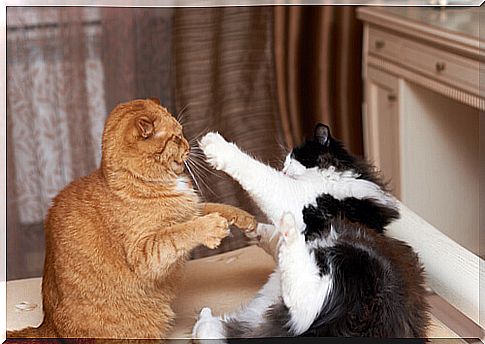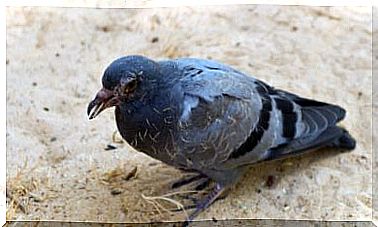What You Should Know About Cat Fighting

If you have more than one kitten in your house, you will have noticed that peace does not always reign between your beloved pets. And it is not at all strange that both home animals and stray animals star in a fight between them. Therefore, we tell you what you need to know about cat fighting.
Why do kittens fight
It is known that the catus felis are very territorial animals. They are also usually jealous, and the main reasons for the fights that are generated pass through there. But they will also try to defend themselves if some situation scares them. And, of course, if the kittens are not neutered, it is obvious that the males will compete for a female in heat.
But the specific causes that trigger cat fights are sometimes difficult for humans to understand. Suddenly, a brawl breaks out out of nowhere that, in general, ends soon and everything continues with complete tranquility between the kittens.
Although, sometimes, things get more complicated and the animals – and you if you want to intercede – can get hurt or remain angry for days.
A new pet, cause of dispute
If you already have a kitten and bring a new one home, you may be facing a cat fight for the first time. And it is that, with greater or lesser intensity, it is likely that the new inhabitant will be rejected. Everything will depend on the character of each animal.

In these cases, it is important that you handle things carefully, to avoid that the former resident feels invaded by the new inhabitant of the home. At the same time, you should provide your new pet with its own space, so that it adapts without suffering too much stress.
The ideal, then, is to avoid that the kittens have to share, at least initially, feeders and drinkers. The same appreciation fits for the sanitary tray, the bed or the toys.
Other causes for cat fighting
Fights between your pets will be inevitable (and violent), for example, if you have a pair of males and a female, and neither of the animals is spayed. Harmony will only return to the house if you operate on your cats. This way you will also avoid unwanted litters.
On the other hand, if a kitten feels cornered or threatened, it can become very aggressive and even attack, both other cats and yourself if you try to touch it. In these circumstances it is best to wait for the animal to calm down and try to figure out what is disturbing it.
Among the causes that can generate this reaction, we can mention the presence of a strange person or animal. Sudden movements or changes in its surroundings, and even loud noises or smells unfamiliar to the pussy can also frighten it.

To avoid fights between your animals, it is also important that you treat them all the same. If cats are jealous, they will most likely end up fighting.
Tips to prevent kittens from fighting
Now, if your pets get into a fight anyway, don’t ever intercede directly to separate them. As much as they love you, and much, in those moments they will not measure consequences and it is very possible that you will suffer a scratch or bite that, of course, was not intended for you.
The best thing to do is to try to dissuade them with some action that distracts the cats’ attention. A scream or some other sound, or hitting an object, can be effective actions. After the fight, do not punish your pets. It doesn’t fix things and can even make them worse.
It is normal for cats to growl or snort from time to time and even have a passing fight. The important thing is that you pay attention so that they do not get into serious fights from which they can get hurt. And if they do occur anyway, handle the situation and then keep the kitties separate until calm returns.
Keep in mind that if the aggressions between cats persist or become very violent, you can consult your veterinarian or an animal behavior specialist.









